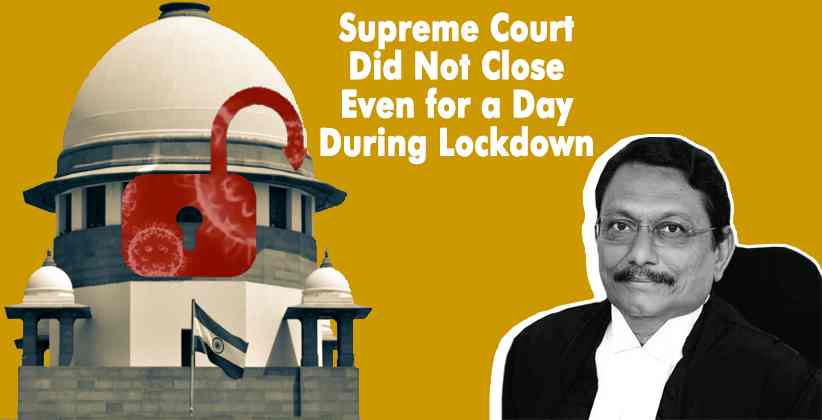During the lockdown, the Supreme Court did not shut down even for a single day, underscoring the resilience shown by the judiciary in maintaining the vibrancy of the Constitution through the pandemic, said Chief Justice of India SA Bobde.
Speaking on the occasion of 71st Constitution day, CJI Bobde noted, During the lockdown, the Supreme Court did not lock down even for a day as a huge percentage of matters involved fundamental rights of citizens, particularly old persons and victims of domestic violence.
President Ram Nath Kovind presided over the event organized by the Supreme Court while another Supreme Court Bar Association (SCBA) event for the occasion was presided by CJI Bobde.
The biggest and the highest challenge the courts faced was delivery of unhampered justice in the midst of lockdown as it gives a sense of security and well-being to citizensClosing physical hearing in courts was the first step, as otherwise, the disease would have spread like wildfire, the CJI said.
Adding that the top court resolved 14,849 cases during the lockdown, high courts approximately 1.5 lakh cases, and district courts close to 4.5 lakh cases, CJI Bobde noted that "our judiciary did better than other countries judiciaries.
President Kovind further said that Justice can be secured to the extent it can be accessed. Access to justice has two major hurdles the cost of litigation and language.
The gallery does not mess with the justice delivery system. "Judges must be allowed to decide cases as required by law," Prasad said, except for a recent article that referred to such judicial decisions as "judicial barbarism" actions.
The Minister added, "We need to be proud of our judiciary by unleashing criticism that transgresses the boundary of ownership."
Borrowing a saying by Roscoe Pound that courts ought to be swift and certain agents of justice. Attorney General KK Venugopal further pointed out, If you have to wait for 20 to 30 years for justice, its a case where justice has failed to the poor and middle-class citizens.
All subordinate courts and high courts will have the facility for live streaming in the coming years, and an intermediate Court of Appeal (between the High Court and the Supreme Court) will eventually be able to resolve appeals from high courts, he claimed, allowing the Supreme Court to deal with national and constitutional problems.






